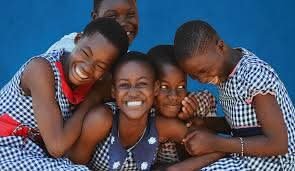(DDM) – Nigerian states have reaffirmed their commitment to promoting adolescent sexual health as part of renewed efforts to strengthen awareness, improve access to information, and sustain ongoing youth-focused health programmes.
DDM gathered that the renewed pledge was made during a high-level review session involving commissioners for health, education officials, civil society groups, and development partners working across multiple states.
Officials explained that the renewed commitment aims to address persistent gaps in adolescent health literacy, reproductive safety, and early-pregnancy prevention.
They noted that recent assessments revealed an increase in misinformation, risky sexual behaviour, and inadequate access to youth-friendly health services across several regions.
Health authorities stressed that state governments must continue expanding school health clubs, counselling centres, digital information platforms, and community outreach programmes tailored to teenage girls and boys.
Experts say Nigeria’s adolescent population remains one of the largest in Africa, with more than 43 million young people falling within the 10–19 age bracket.
They warned that failure to prioritise adolescent sexual health could worsen maternal mortality rates, fuel unsafe abortions, increase sexually transmitted infections, and deepen gender-based vulnerabilities.
Stakeholders highlighted that many states have already recorded significant progress through awareness campaigns, youth empowerment programmes, and collaborations with global organisations.
They added that structured interventions such as peer-education initiatives, health-facility upgrades, and digital learning channels have contributed to improved access to verified health information.
Background checks show that Nigeria’s adolescent health policy framework has evolved over the past decade to include sexuality education, counselling, life-skills training, and reproductive health services.
However, experts argue that implementation remains inconsistent across regions due to cultural barriers, funding shortages, stigma, and resistance from conservative groups.
Officials disclosed that states remain committed to providing safe spaces where teenagers can access accurate reproductive-health information without fear of judgment or discrimination.
They further explained that school-based programmes will continue integrating age-appropriate sexuality education into classrooms, despite opposition from groups who argue that such lessons encourage immorality.
Advocates countered that withholding vital health information exposes teenagers to dangerous practices, increases vulnerability to exploitation, and undermines overall social development.
Representatives from civil society organisations urged state governments to allocate more funding to adolescent sexual-health programmes, particularly in rural and underserved communities.
They insisted that support systems such as youth clinics, hotlines, and mobile outreach programmes must be strengthened to address rising concerns among young people.
Development partners reaffirmed their willingness to continue providing technical assistance, educational materials, and training to frontline health workers across the country.
Officials warned that the digital environment has become a major source of unverified information, making it essential for states to counter harmful online content with accurate health education.
They also emphasised that empowering adolescents with knowledge remains one of the most effective ways to promote long-term reproductive health and reduce gender-based risks.
State representatives concluded that ongoing collaborations with traditional leaders, religious groups, and community gatekeepers will play a key role in dismantling stigma associated with youth sexual-health discussions.
They reiterated that investing in adolescent well-being is not only a health priority but also a strategic foundation for national development.
They stressed that Nigeria cannot achieve its broader public-health goals without ensuring that young people have full access to the information and services they need to make safe, informed decisions.


